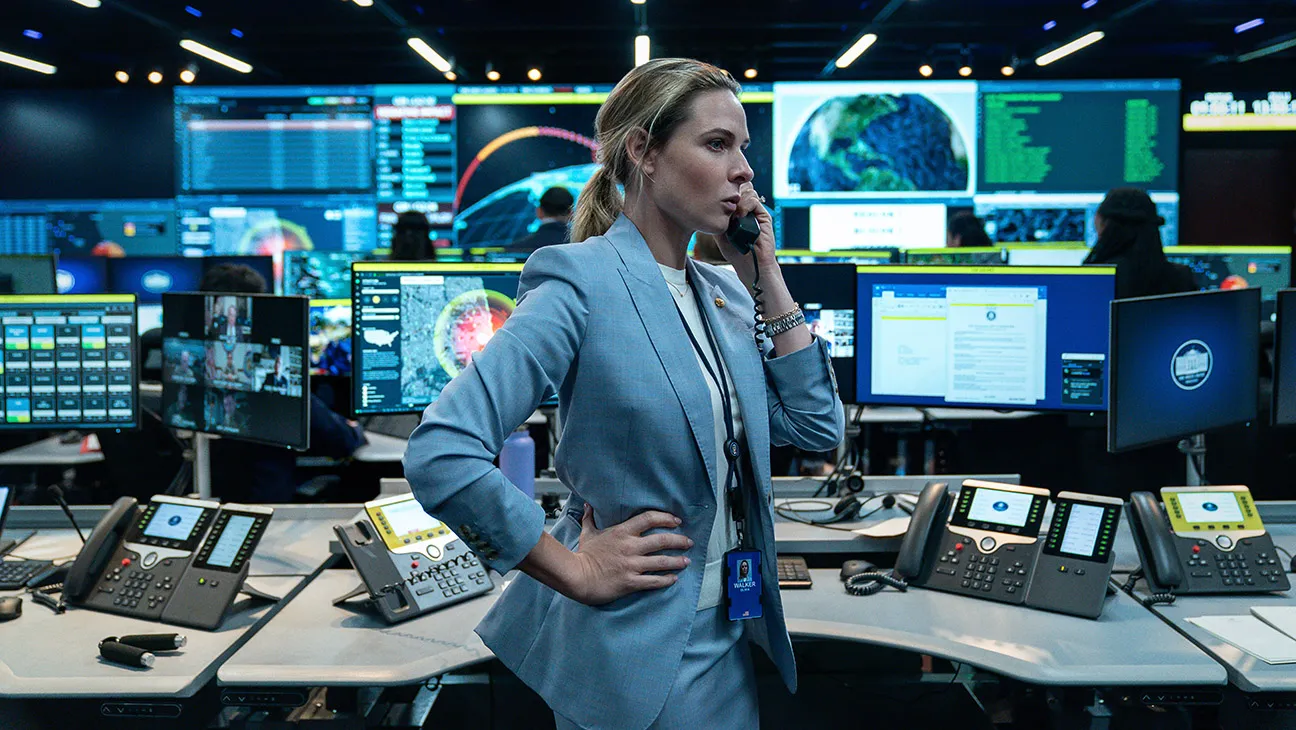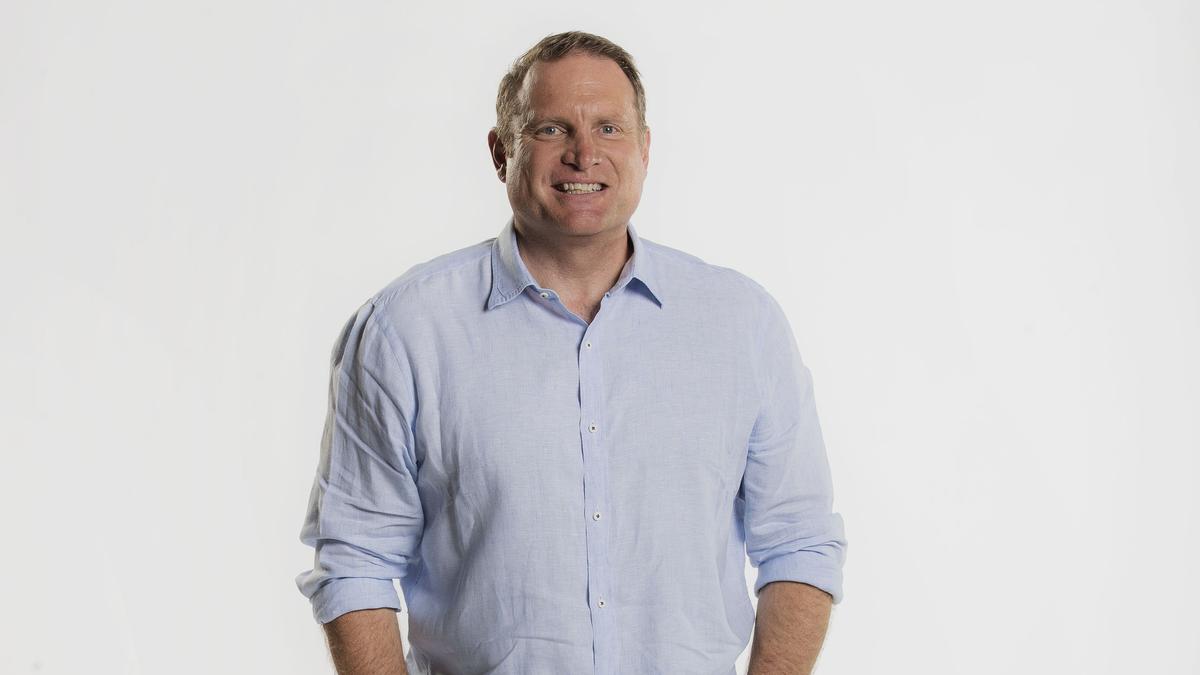Copyright The Hollywood Reporter

Kathryn Bigelow is happy A House of Dynamite is sparking conversations. That’s her initial — and genuinely enthusiastic — response to The Hollywood Reporter when asked about Bloomberg’s recent report that the Pentagon sent out an internal memo about her film, criticizing its depiction of the United States’ nuclear missile defense system. The movie’s view is based on Bigelow and screenwriter Noah Oppenheim’s extensive research and interviews with experts: They depict with startling detail how, with less than 30 minutes from detection, officials can best, if ultimately insufficiently, respond to an incoming attack, with the current U.S. system able to stop a nuclear missile roughly 50 percent of the time. (“A coin toss,” as the refrain in the movie goes.) Per Bloomberg, the Pentagon counters that its systems “have displayed a 100% accuracy rate in testing for more than a decade.” Writers like The Atlantic’s Tom Nichols, with whom Bigelow and Oppenheim spoke for the film, have already disputed The Pentagon’s apparent claims. Officials including U.S. Senator Edward J. Markey have gone public praising the film for raising nuclear awareness — and getting it seemingly right. The Pentagon has complicated the conversation over the level of accuracy in A House of Dynamite, which has premiered to strong numbers on Netflix as the streamer’s number one film, with 22.1 million views in its first three days, per the company. But Bigelow and Oppenheim welcome the debate. In an exclusive conversation with THR, they reflect on the movie’s success so far, lessons learned from the controversy around Bigelow’s Oscar-winning Zero Dark Thirty, and why they feel confident in their depiction. I want to get right into it and ask you, Kathryn, about this Pentagon memo that Bloomberg first reported on. What is your reaction to it? KATHRYN BIGELOW It’s interesting. In a perfect world, culture has the potential to drive policy — and if there’s dialogue around the proliferation of nuclear weapons, that is music to my ears, certainly. What are your feelings around the fact that they did internally decide to respond to the movie and take some level of issue with your depiction of our missile-defense system? Why do you think that they chose to do that? NOAH OPPENHEIM There’s no way for us to get in the minds of the folks who wrote that memo, but as Kathryn said, both of us are thrilled to see a conversation happening between policymakers and experts about how to make the world a safer place. So if the film was a catalyst in some way for that larger conversation and dialogue, that’s one of the reasons why we made it — to trigger that kind of conversation. Do you worry, though, that this will challenge the credibility of the film? How do you feel about the fact that they’re taking a stance that opposes, to some degree, what you depict in the film? OPPENHEIM As we see it, it’s not a debate between us as filmmakers and the Pentagon. It’s between the Pentagon and the wider community of experts in the space. Senator Edward Markey or retired general Douglas Lute; journalists like Tom Nichols and Fred Kaplan who’ve covered this issue for decades; the APS, which is a nonpartisan organization of physicists — these are the folks who are coming out and saying what we depict in the film, which is that our current missile defense system is highly imperfect, is accurate. On the other side of that conversation, you have the Pentagon apparently asserting that it’s 100 percent effective. We believe all those experts who’ve told us that the system is more like a coin toss like we depict in the film, but we’re glad all these folks are having the debate and the conversation. The Pentagon also apparently noted you did not consult them while making the movie. Kathryn, you’ve said you felt it was important to keep this film independent. Can you talk about why, in light of this response? BIGELOW It’s the best course of action, to consult with all of the experts that we did. We had extraordinary tech advisors on this film, and then they were our North Star. OPPENHEIM I’m a former journalist, you’re a journalist. I think it’s safe to say that folks who are not currently serving in government are often more free to speak their minds and to give you an accurate picture, as opposed to trying to advance any particular agenda. So relying on folks who recently served in the Pentagon, recently served in our intelligence agencies in the White House — we feel pretty confident in the accuracy of the picture that they gave us. Kathryn, Zero Dark Thirty obviously elicited a ton of response and controversy from government officials and experts. Were there any lessons learned, or wisdom gleaned, from that experience in terms of how to operate in the aftermath of the release of these films, which speak so directly and potently to our real world? BIGELOW I just state the truth. In this piece, it’s all about realism and authenticity. Same with Zero Dark Thirty and same with Hurt Locker — even though Hurt Locker was obviously a work of fiction, and this is a work of fiction. For me, these are pieces that lean in hard on realism. You’re inviting an audience into, say, the battledeck of STRATCOM. That’s a place that’s not easily accessible, and so you want it to be authentic and honest. That’s my goal, and I think we achieved it. In addition to the public commentary from experts that you mentioned, Noah, what have you heard from people about the film as it’s soared on Netflix over the last few days? OPPENHEIM It’s been really gratifying that the folks who know the subject the best have told us that they feel like we’ve captured it accurately and that this is the world that they have been examining for all their careers. BIGELOW To be honest, nuclear weapons have been shrouded in silence for several decades now. It’s my opinion that this was a conversation that needed to happen. This movie has struck such a chord since it premiered. It’s been at number one on Netflix for the last few days. Do you think that’s partly why it’s resonated — the fact that it is something that has been shrouded in silence, as you say? BIGELOW Very much so. It’s grappling with the idea that we’re surrounded by 12,000 (nuclear) weapons. We live in a really combustible environment, hence the title — we live in A House of Dynamite. The unthinkable — it’s time to address it and, in a perfect world, begin discussions about reducing the nuclear stockpile. OPPENHEIM It is extraordinary, the power of the Netflix platform in terms of its ability to reach an audience all over the world and drive a conversation. The number of people who’ve watched the movie just in these first few days, it’s beyond our wildest expectations, and you’re seeing a conversation about this not just in the United States, but all over the world, because Netflix has that kind of global reach. Hearing from people in my past life as a journalist, hearing from friends and family all over the world whose attention has been turned to this very important issue so that they’re coming out of the movie and saying, “Wow, Kathryn Bigelow sure can make a compelling thriller,” and “I was on the edge of my seat for two hours,” and also, “I’m thinking about this really critical policy issue for the first time in a long time” — the combination of those two things is pretty great. Kathryn, how about for you? This is your first streaming movie. Are you online? Are you tracking the discourse? BIGELOW(Laughs.) I mean, I’m receiving texts and emails all over the world. It’s really very profound. The reach is extraordinary, but more importantly, the story, the concept, the subject is what’s really inspiring conversation and feedback and trepidation — in a good way. In other words, this is a conversation. That is a long time coming. We have in February the beginning of the negotiation for the START Treaty, and I’ve heard from one gentleman who will be involved in that negotiation, who’s seen the movie twice — and would like to see a meaningful impact in that negotiation. There’s so much talk about the ending, the uncertainty that it very intentionally leaves viewers with. Have you followed the way that people are sitting with it and debating it? OPPENHEIM Kathryn and I wanted the movie to invite the audience to lean in the end, to not kind of give anyone an easy out or tie it up with a bow. We wanted to instigate reflection and conversation, and we both give a lot of credit to Netflix for letting Kathryn make the movie that she envisioned from the very beginning. As the ending is driving people to talk more about this subject, it’s exactly what we hoped for.



